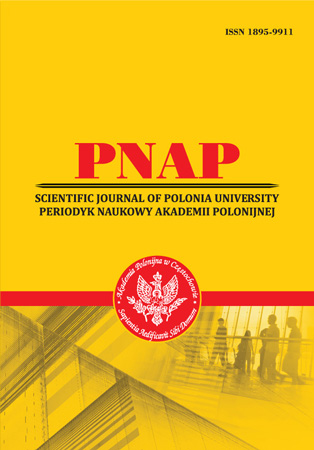COGNITIVE-PRAGMATIC ASPECT OF THE CATEGORY OF EVALUATION
Abstract
The paper is aimed at studying the category of evaluation, a very important and interesting phenomenon in linguistics. Evaluation of different world’s fragments is, of course, a considerable part of human cognitive activity. Evaluation is realized by subject's consciousness in the perception and processing of information about the outside world and relates to internal (linguistic) world of man, reflecting his “view of the world.” The essence of the category of evaluation is explained by the theory of value orientation of person’s activity and consciousness, and the range of its characteristics embraces all that is given by the physical and mental nature of man, his being and feeling. Evaluation is as a kind of cognitive activity, as in epistemological terms, any cognitive act expresses the attitude of the speaker to the object described, that is, contains an act of evaluation. Evaluative interpretation of circumstances, subjects is one of the most important types of mental-speech activity in everyday life of an individual. The article proposes the communicative approach to the research of evaluative phenomena that exist in the reality and are reflected in language. The communicative aspect of the language means the existence of a unified structure of the linguistic units, bound by the connection of meaningful and formal sides. In this regard, the functioning of evaluative utterances acquires special significance, because the evaluation of various fragments of the world is one of the most important components of individual’s cognitive activity. The evaluation should be studied comprehensively and profoundly as a category of high level abstraction as one of the categories given by the social, physical and mental nature of a person, which determines his relation to other individuals and objects of the surrounding reality.
References
2. Arutyunova, N. D. (2012). Logicheskij analiz yazyka. Adresatsiya diskursa [Logical analysis of the language. Discourse addressing]. Moscow: Indrik. [in Russian]
3. Bally, Sh. (1955). Obshaya lingvistika i voprosu frantsuzskogo yazyka [General linguistics and problems of French language]. Moscow: Izd-vo inostr. lit-ru. [in Russian]
4. Bara, B. G. (2010). Cognitive pragmatics: The mental processes of communication. USA: MIT Press.
5. Bednarek, M. (2009). Dimensions of evaluation: Cognitive and linguistic perspectives. Pragmatics and Cognition, 17(1), 146-175. Doi.: 10.1075/pc.17.1.05bed
6. Bondarko, A.V. (1999). Osnvu funktsionalnoj grammatiki: Yazykovaya interpretatsiya idei vremeni [Fundamentals of functional grammar: Linguistic interpretation of the idea of time]. St. Petersburg: Izd-vo S-Peterb. un-ta. [in Russian]
7. Breeze, R., Olza, I. (2017). Evaluation in media discourse. European perspectives. Berlin: Peter Lang. Doi.: 10.3726/b10531
8. Byessonova, O. (2012). Reconstruction of Value Concepts in the Language Model of the World. In: Ferencik, M. & Bednarova-Gibova, K. (Eds.), Language, Literature and Culture in a Changing Transatlantic World II. Part I: Lingustics, Translation and Cultural Studies, 7-14.
9. Christie, A. (1967). Endless Night. London: Publ. by Collins.
10. Fedoriv, Ya. (2016). Speaking to the global audience: A case study into the message transformation. Lege artis. Language yesterday, today, tomorrow. I (2), 1-36. http://dx.doi.org/10.1515/lart-2016-0009
11. Hailey, A. (1968). Airport. New York: Doubleday.
12. Hemingway, E. (1976). A Farewell to Arms. Moscow, Russia: Progress Publishers.
13. Kecskes I. (2013). Intercultural Pragmatics. Oxford: Oxford University Press.
14. Lulu, L. (2017). Application of Cooperative Principle and Politeness Principle in Class Question-answer Process. Theory and Practice in Language Studies, 7 (7), 563–569. DOI: 10.17507/tpls.0707.10.
15. Martin, J. R., White, P. R. R. (2005). The Language of Evaluation. Appraisal in English. New York: Palgrave Macmillan.
16. McInnes, C. (1958). City of Spades. New York: Macmillan.
17. Murdoch, I. (1974). The Sacred and Profane Love Machine. New York: Viking Press.
18. Myroniuk, T. (2017). Evaluative Responses in Modern English Fiction. Advanced Education, 8, pp. 103–108. DOI: 10.20535/2410-8286.108550.
19. Nikitin, M. V. (2007). Kurs lingvisticheskoj semantiki [Course of linguistic semantics]. St. Petersburg: Izd-vo RGPU im. A.I. Gertsena. [in Russian]
20. Potebnya, A. A. (1968). Iz zapisok po russkoj grammatike From notes on Russian grammar]. Moscow: Prosveshchenie. [in Russian]
21. Prihodko, A. (2016). Cognitive-communicative organization of the evaluative frame. Lege Artis, 1(1), pp. 275–308. DOI: 10.1515/lart-2016-0006 ISSN 2453-8035.
22. Prihodko, G. I. (2016). Katehoriia otsinky v konteksti zminy linhvistychnykh paradyhm [The category of evaluation in the context of the change of linguistic paradigms]. Zaporizhzhia: Kruhozir. [in Ukrainian]
23. Toolan, M. (2013). Narrative: A critical linguistic introduction. London; New York: Routledge
24. Vinogradov, V.V. (2001). Russkij yazyk (Grammaticheskoye utseniye o slove) [Russian language: grammatical theory of the word]. Moscow: Nauka. [in Russian]
25. Volf, E.M. (2009). Funktsionalnaya semantika otsenki [Functional semantics of evaluation] (3d ed.). Moscow: Editorial URSS. [in Russian]
26. Vonnegut K. jr. (1952). Player Piano. – New York: Charles Scribner's Sons.
27. White, P. R. R., (2015). Appraisal Theory. In: Tracy, K. (Ed.). The International Encyclopedia of Language and Social Interaction.John Wiley & Sons. Doi.: 10.1002/9781118611463.wbielsi041
28. White, P. (2016). Evaluative contents in verbal communication. In A. Rocci & L. Saussure (Eds.), Verbal communication (pp. 77–96). Berlin, De Gruyter Mouton. Doi.: 10.1515/9783110255478-006.
Abstract views: 368 PDF Downloads: 221







